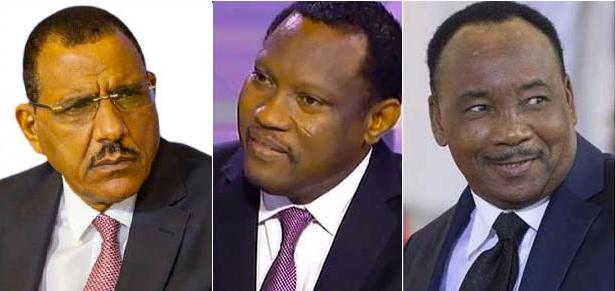Mauritania has a new president, but will things change?
Published on Wednesday 24 July 2019 Back to articles
As expected President Mohamed Ould Abdel Aziz’s chosen successor, Mohamed Ould Cheikh Mohamed Ahmed Ould el-Ghazouani (b.1956), won the 22 June presidential election. El-Ghazouani won 52% of the votes in the first round — despite being challenged by four opposition candidates and an independent — which avoided the need for a second round (given that it passed the 50% minimum threshold required to win).
Amid credible criticisms of state-repression and election fraud, there are three positives outcomes from this election.
Outcome 1: Mauritania’s first democratic transition
The election, despite its irregularities and questionable legitimacy, is the first democratic transition between two elected presidents since its independence from France in 1960. Until now, every change of power has been by coups d’état.
Outcome 2: Biram Dah Abeid brings new dynamic to Mauritanian politics
The election has brought human rights activist Biram Dah Abeid — the runner up who received 18.58% of the vote — to the centre stage after he defeated Sidi Mohamed Boubacar for second place. This was to be expected after probably securing the most votes in the 2014 presidential election had they been free and fair. He may have conceivably won a second round this year had it taken place.
Biram Dah Abeid is an impressive figure. Descended from slaves, he has long campaigned against the regime’s reluctance to rid the country of slavery and has been jailed by the authorities on five occasions for doing so. He won the UN Human Rights Prize in 2013 in appreciation of his efforts.
It is Biram Dah Abeid’s increased profile as both a politician and a human rights activist that led an official government delegation to meet with him for the first time on 9 July. In a display of pragmatism, he has proposed the opening of dialogue with the regime. If this materialises, it could lead to the normalisation of relations between the opposition and the ruling Union pour la République (UPR) which, in turn, holds the possibility of major and long-needed progress on many of the social, political and economic issues facing the country.
Outcome 3: Improvement in Mauritanian-Moroccan relations
A third potential outcome of the election is that it could lead to an improvement in relations with Morocco and within the wider Maghreb.
El-Ghazouani is expected to build warmer relations with Morocco than his predecessor. As a former student of the Meknes Military Academy — the Moroccan army officer training school — he knows the Moroccan security services. He maintains good relations because of his former posts as head of Mauritania’s intelligence service, head of army staff, and defence minister. This is exemplified by the fact that Morocco was among the first countries to congratulate el-Ghazouani for his election with the message coming directly from King Mohammed VI.



